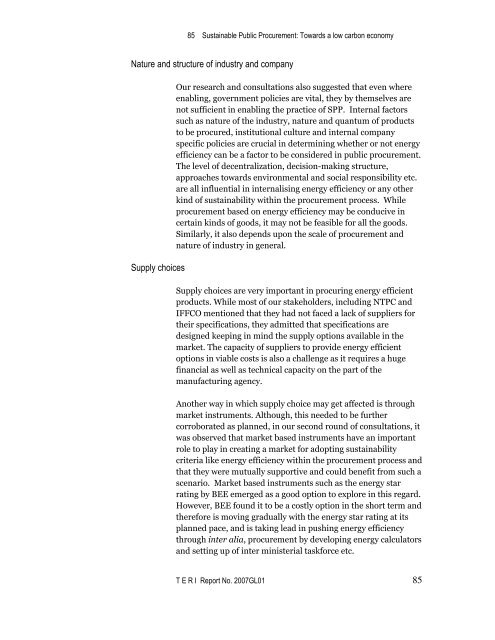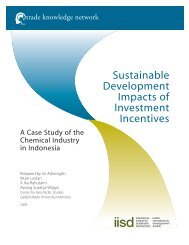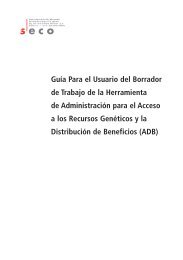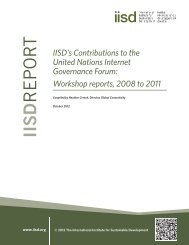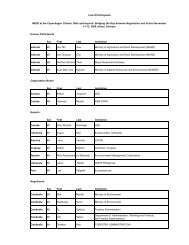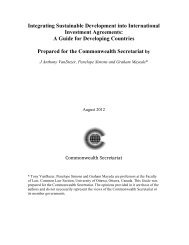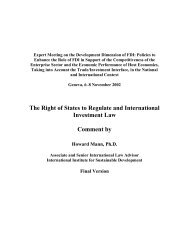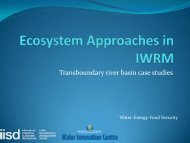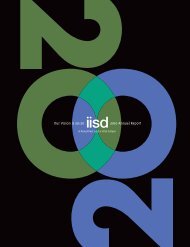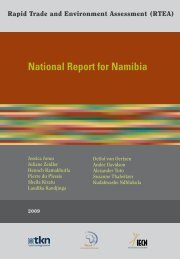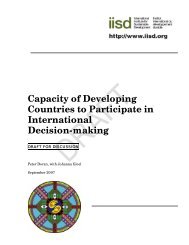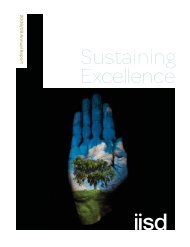Sustainable Public Procurement: Towards a lowâcarbon economy
Sustainable Public Procurement: Towards a lowâcarbon economy
Sustainable Public Procurement: Towards a lowâcarbon economy
Create successful ePaper yourself
Turn your PDF publications into a flip-book with our unique Google optimized e-Paper software.
85 <strong>Sustainable</strong> <strong>Public</strong> <strong>Procurement</strong>: <strong>Towards</strong> a low carbon <strong>economy</strong><br />
Nature and structure of industry and company<br />
Supply choices<br />
Our research and consultations also suggested that even where<br />
enabling, government policies are vital, they by themselves are<br />
not sufficient in enabling the practice of SPP. Internal factors<br />
such as nature of the industry, nature and quantum of products<br />
to be procured, institutional culture and internal company<br />
specific policies are crucial in determining whether or not energy<br />
efficiency can be a factor to be considered in public procurement.<br />
The level of decentralization, decision-making structure,<br />
approaches towards environmental and social responsibility etc.<br />
are all influential in internalising energy efficiency or any other<br />
kind of sustainability within the procurement process. While<br />
procurement based on energy efficiency may be conducive in<br />
certain kinds of goods, it may not be feasible for all the goods.<br />
Similarly, it also depends upon the scale of procurement and<br />
nature of industry in general.<br />
Supply choices are very important in procuring energy efficient<br />
products. While most of our stakeholders, including NTPC and<br />
IFFCO mentioned that they had not faced a lack of suppliers for<br />
their specifications, they admitted that specifications are<br />
designed keeping in mind the supply options available in the<br />
market. The capacity of suppliers to provide energy efficient<br />
options in viable costs is also a challenge as it requires a huge<br />
financial as well as technical capacity on the part of the<br />
manufacturing agency.<br />
Another way in which supply choice may get affected is through<br />
market instruments. Although, this needed to be further<br />
corroborated as planned, in our second round of consultations, it<br />
was observed that market based instruments have an important<br />
role to play in creating a market for adopting sustainability<br />
criteria like energy efficiency within the procurement process and<br />
that they were mutually supportive and could benefit from such a<br />
scenario. Market based instruments such as the energy star<br />
rating by BEE emerged as a good option to explore in this regard.<br />
However, BEE found it to be a costly option in the short term and<br />
therefore is moving gradually with the energy star rating at its<br />
planned pace, and is taking lead in pushing energy efficiency<br />
through inter alia, procurement by developing energy calculators<br />
and setting up of inter ministerial taskforce etc.<br />
T E R I Report No. 2007GL01 85


